Hello and welcome to Episode 203 (or is it Episode 406?) of the Congress’s civil war. Like some long-running serial that began with a flurry of excitement but has now settled down to daytime monotony, the Congress’s version of “The Bald And The Boring” does attempt to deliver neardaily new twists. But nobody cares.
This week, the plot took us to Jammu. Why was cunning Ghulam Nabi planning a secret conclave there? And then to Calcutta. Was the Congress making seat-sharing deals with a fundamentalist cleric and betraying its ideology? Back to Delhi. Why is Adhir Ranjan Chaudhary communicating with his party colleagues on Twitter? Does he not know how to make a phone call? Has his WhatsApp/Telegram/Signal been disabled? Was the laughter you could hear in the background the sound of Amit Shah and Narendra Modi chortling?
The Congress’s internal battle has now got so tiresome and repetitive that even those who want a political force to restrain this government no longer expect anything from the party. Instead, they look outside the opposition parties and consider how mass movements like the Farmers’ Agitation seem to have worried Mr. Modi. They look to the courts, not to politicians, to combat the regime’s more egregious assaults on civil liberties.
The Congress is not the first political party to try eating its own tail while in opposition. The British Labour Party did something similar in the decade after Margaret Thatcher came to power in 1979. And the Congress itself did the same thing itself in the 1977-9 post-Emergency period with fights and splits.
But one intriguing parallel to what is happening today comes from the Congress split of 1969. That was when Indira Gandhi broke the party and two different Congresses went to the polls in 1971.
Mrs Gandhi was supported by younger, more aggressive leaders, while the opposing faction comprised leaders from her father’s era who had been in power for decades. The press called these leaders “The Syndicate” and portrayed them as an older generation that was out of touch with contemporary India and would not give away to the new wave of Congressmen.
In reality, the battle was all about one person. The Syndicate resented Indira Gandhi and wanted her out.
And so it is today.
For all the pious rhetoric, the battle in today’s Congress is about one person too: Rahul Gandhi. The rebels believe that he is incapable of leading the party, at least not without some collective leadership. Unfortunately, they say, his advisors seem to be a bunch of not-very-bright, super-loyal, (relatively) young Congressmen who want control of the party.
Over the last few months, much to the horror of the rebels who were initially hailed as a voice for inner-party democracy, they have now begun to be seen as this century’s version of The Syndicate: old men who won’t let go.
This is an unfair characterisation but it works because a) the rebels are mostly old and b) they won’t let go. But while Indira Gandhi was able to turn her battle with The Syndicate into a national obsession, the Congress’s soap opera has seen its ratings dip by the week.
Some of this has to do with the hollow centre of the Congress battle. In 1969, Indira Gandhi was fighting for survival. But she was shrewd enough to turn it into an ideological battle. She was fighting the stranglehold of the rich on behalf of the poor to introduce a leftist socialist system of governance, she declared.
The ideology option is not available to either side in the current Congress battle because Narendra Modi has already hijacked the party’s pro-poor, welfare-measures platform and ridden home with it. As Arun Shourie has said, today’s BJP is “Congress plus cow”.
Given that its principal plank has already been appropriated, all that is left for the Congress is to embrace the cow, which for obvious reasons it will not do.
Shorn of any ideology, the New Syndicate versus Rahul’s Stormtroopers battle has become only about control of the party; a subject that most Indians now find tiresome.
It would help, of course, if anyone saw the Congress as a sharp, shrewd party, capable of outwitting the BJP and its billions of rupees. But as the experience in Puducherry tells us, there is no one in the Congress capable of launching an effective guerrilla operation to counter Modi-Shah (with the possible reception of Ashok Gehlot who has held on to his government in Rajasthan against the odds).
The problem with Rahul Gandhi is that while his supporters are often right about him, these virtues will not help the Congress return to power. Yes, Rahul is perhaps the only national leader with the guts to attack the Modi-Shah duo by name and to hammer away at what he sees as their misdeeds. (“Hum Do, Hamare Do” for instance.) But the problem with vicious personal attacks is that they only appeal to people who are already opposed to Mr Modi. That may be a loud and articulate constituency. But it is a constituency that will never vote for the BJP anyway. For the Congress to get anywhere, it must win over uncommitted voters or those who are becoming disillusioned with Mr Modi. A few savage jokes will not help in that endeavour.
Nor does it help when Congressmen take to social media to rave about Rahul Gandhi’s biceps. What is this man fighting to become? Prime Minister? Or Mr. India?
But neither side in this Congress battle seems ready to give up. So the soap opera will continue day after day as Mr. Modi laughs all the way to the polling booths.
So keep that remote handy. You might want to switch channels as this soap opera drags on.
(Vir Sanghvi is a journalist and TV anchor.)
Source: NDTV

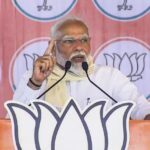
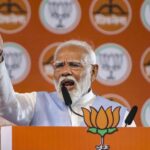

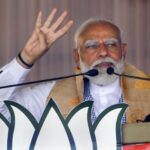


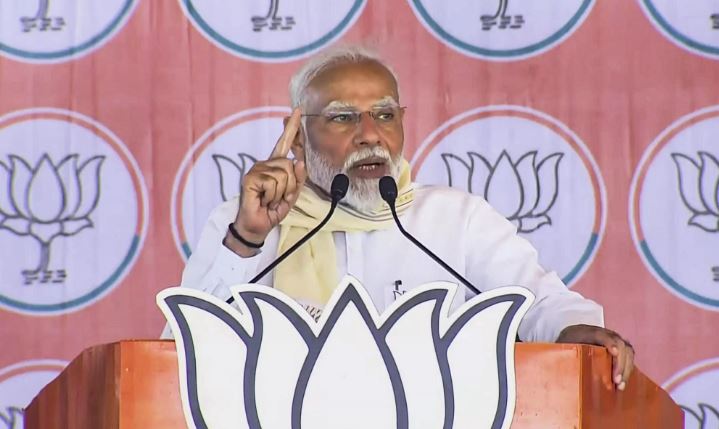
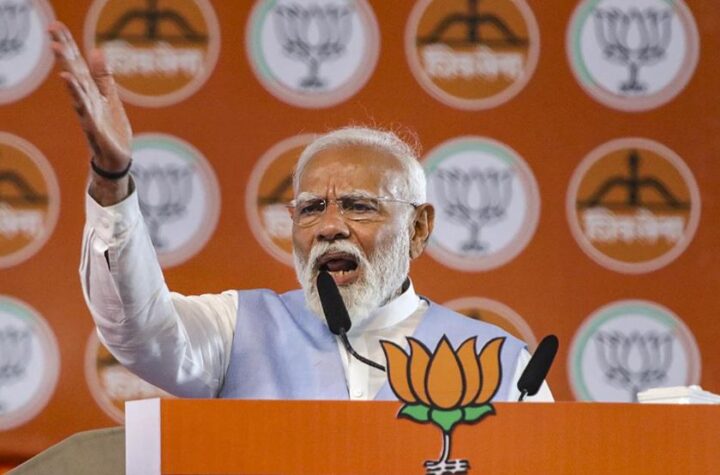

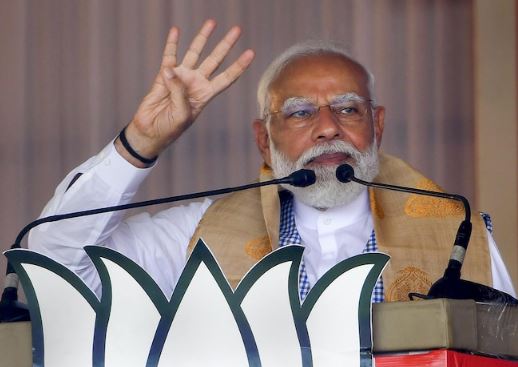
More Stories
Now country ‘aatank’ struggling for ‘aata’: PM
NDA as 15 in Northeast’s 25 seats go to polls: PM
IPL: For Bumrah every ball wicket-taking delivery